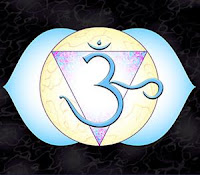Hari
OM
Application - that is what 'Workings-days' are about!
We are now undertaking basic technical
discourse on Vedanta. The text
forming the basis of these posts is 'Kindle Life'. Please do reread previous posts using the labels 'Workings-days' or
'Kindle Life'.
Chapter 29: AT WAR WITH MIND.
As
we explore this chapter of the book, remember that it ties in with japa very
closely; repetition of mantra, be it OM, or the Gaayatri. Japa is to be used
when entering meditation proper, as the precursor to redirecting the mind into
the divine channel.
Last
week we read how Gurudev made the point that trouble we have in meditation,
with the mind fighting back for its independence, is nothing short of a war
between our 'good and evil' natures. A quote of Gurudev, not given in this text
but which is very pertinent, is;
Now
for the pointers to managing the mind in meditation. These are not particularly
laboured nor difficult - if the student is prepared to apply his or herself. A molehill,
though, is an obstacle to one who will not climb.
2) We often find that a wandering mind is a mind that has gone forever from its aim of concentration; it is habitual, never having had taming applied to it. Instead we go with it and do not recognise at all that the course has been circuitous or lost. Therefore the remedy lies within ourselves. When we are sitting for prayer and meditation we must be fully conscious of what we are about. It is for the purpose that we have congregational prayers, chiming of bells, waving of incense, lamps, japa and so forth. All these help keep our focus - at least is the intention! It is also the case, in every religion, that we are expected to cleanse ourselves and wear clean clothes. This preparation is not just for the body, but begins to bring the mind to purpose. Sadly, this is something which has lapsed. It is a truth that in a dirty room, in dirty clothes, under dirty wrappers, we cannot meditate properly. Cleanliness is next to Godliness!
3) In a clean room or corner of room, after ablutions, when we sit in aasana before our altar/focal point, we ought to have dropped off all extraneous thought and be now able to focus. Use of an OM picture or statue, or murti or simply a lamp itself is wonderfully centring and a physical aid to the subtle process. Make use of these, though take not that even with such, the subtle causes rising from the inner world, our 'time bombs', will come to sabotage our efforts. Our love/hat, hope/demand, desire/passion and so on make the inner world dirty and, propelled by our minds, fly at a tangent. These are the vaasans making themselves known. Observe them and knock them aside. Aiding this is verbal chanting and kirtan (singing of hymns), keeping our eyes open and focused upon the picture/murti/lamp… Here too we can deceive ourselves; and the majority of worshippers all over the world are doing it today - they make a great show of their devotion and scriptural learning, of their rituals and paraphernalia. Such devotees are suffering from exhibitionism rather than blessed by any true spiritual urge. The equipment is not the spirituality, but tools to aid the seeker in quelling the external; sincerity of purpose is the secret of success in meditation. Use the tools then move along. A simple wooden cross holds all the same high spiritual value as an emblem of jewel encrusted gold. Both are there only as rungs on the ladder of our focus.
4) Generally, an uncontrolled and raw mind wanders into
limitless fields; now in heaven, now in hell, now here, now there. All of a sudden, to control such a mind
would amount to a degree of suppression, which is not healthy. Thus, in all faiths, we are given
authorised versions of the history of the Gurus or the achievements of the
'God-man' upon Earth. To read such
stories and to meditate upon the Lord's divine play on the stage of life
gives a large field for the mind to wander; but this time with the
integrating factor underlying all its corners - focus of Lord.
Reducing even this field to one single incident
in the Lord's life, which perhaps attracts you the most, and to meditate upon
it, would be training the mind to restrain its activities to a single point.
From this stage, to fix our attention upon the Lord's form - or symbol - would
be to bringing the focus even more singular - though even here there is scope
for the mind to engage itself… oh see how the image appears to have a different
colour today… my, how the lamp twinkles…
Again, to aim still nearer to the 'bulls eye',
would be when the mind comes to meditate upon merely the face of the Lord, or
the bindu of the OM, or the very centre of the flame. Eliminating all the
different details, we concentrate on that one single attribute of our 'tool'.
This is a precarious place, for the mind is still active yet it is seeing
beyond its usual mayhem, glimpsing the enticement to work harder. In all this, the saadhaka depends upon his
devotion and Love for the Lord/OM and success is dependent on the amount of
Love which can be brought to bear in that moment. Welling up with desire to be
one with Lord/OM is the guidance here.
This is sufficient for today. We shall continue
next week.


